This is an overview and should not substitute for personally reviewing the requirements of each school. Please visit the respective school's website, as these requirements are subject to change. Each school has additional requirements regarding social sciences, humanities, and writing. This is only an overview of the science pre-requisites. For all non-science course requirements, please visit each PA School's website.
- About
- Subscribe to the Pre-Health Listserv
- Pre-Health Timeline
- Apply to Pre-Health
- Advising
- Events and Seminars
- Pre-Health Mentoring Initiative
- Course Requirements
- Pre-Health Committee
- Successful Applicants
- Pre-Health Purple Hawk Podcast
- Programs to Consider
- Clubs and Organizations
- Resources
- FAQs
- Contact Us
Physician Associate/Assistant School
Hunter College does not offer a Physician Assistant Program.
General Information
Per the American Academy of Physician Associates, PAs are medical professionals who diagnose illness, develop and manage treatment plans, prescribe medications, and often serve as a patient's principal healthcare provider. With thousands of hours of medical training, PAs are versatile and collaborative and practice in every state and in every medical setting and specialty, improving healthcare access and quality.
The PA profession is a social innovation that evolved to help fill health care gaps, first in primary care and today, in all medical and surgical specialties and subspecialties. The PA profession is continuing to have a positive impact on healthcare, growing from 103 PAs for every 1,000 physicians in the U.S. in 2015 to 156 in 2019. PAs work in over 69 different medical and surgical specialties and subspecialties.
The Graduate Admissions Process
Most Physician Assistant programs accept between 30-50 students a year making admissions very competitive. Many Physician Assistant programs require that applicants take the GRE (Graduate Record Examination). Remember, the information above only applies to Physician Associate programs in New York State but there are many other programs throughout the country.
There are 30 Accreditation Review Commission Physician Assistant programs in New York State. For specific information regarding a physician assistant graduate program, check the PA Education Association (PAEA) website's Graduate Programs page.
Academics
Applicants are expected to complete an undergraduate degree, as well as an accredited graduate program. Please check each institution for their prerequisites for admission. In general, a minimum 3.34 science GPA and a 3.6 overall GPA is considered competitive. Please check website admissions for each school for more specific information.
Admissions Exams
- GRE: Currently, 26 of 30 New York State schools do not require the GRE. Please refer to the individual school to check on their policy as they change from cycle to cycle. A competitive GRE score is above the 50th percentile with a score between 300 and 310 or above and a 3.5 score on the writing section.
- PA-CAT: Not required by any institution.
Applying
- The Centralized Application Service for Physician Assistants (CASPA) opens on the last Thursday of April and closes April 1 of the following year. Be sure to get in your transcripts and application early!
- CASPA Costs: FEE waivers are available. Please apply and apply early.
Recommended Activities & Student Statistics
Physician Assistant programs require extensive health care experience. While every school has its own minimum requirement, most schools require between 500-1000 documented hours of health care experience—particularly direct patient care.
Each school also feels differently about volunteering versus getting paid. Some would even like applicants to have non-health care related community service hours in addition to their health care experience.
Other schools would like students to have experience in more than one health care setting.
Check with each school for its preferences. Generally, the more hours of experience you earn the better candidate you become.
Below is a partial list of recognized experiences:
- Emergency Medical Technician
- Paramedic
- Medical Assistant
- Surgical Technologist
- Licensed Practical or Registered Nurse
- Dental Assistant
- Dental Hygienist
- Patient Interactive Scribe
- Certified Nursing Assistant
- Home Health Aide
- Residential Aide
- Physical Therapy Assistant
- Physical Therapy Aide
- Occupational Therapy Assistant
- Occupational Therapy Aide
- Respiratory Therapist
- Perfusionist
- Electrocardiographic (EKG) Technician
- Ophthalmologic Technician
- Volunteer Work involving Direct Patient Care
Working with the Pre-Health Office & Opening Your Pre-Health File
If you plan to apply to Physician Assistant programs, you may choose to open a Pre-Health File with the Pre-Health Professions Advising Office so that you can have access to advising, resources, and opportunities. Our office can also assist you in application planning, personal statement review, and uploading your letters of recommendation to CASPA.
Moreover, if you are unsure whether you want to pursue medical school or physician assistant studies, then you should open a file with our office and begin collecting the appropriate evaluations and letters of recommendation. By doing so, you preserve your options and your ability to apply for a Committee Letter if you choose to apply to medical schools.
Course Requirements for Selected PA Programs
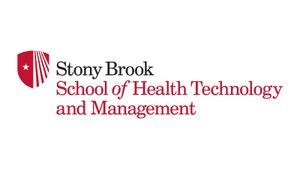
Academic Prerequisites
Please note that meeting minimum requirements does not guarantee an interview or admission to the program.
All applicants must meet the following minimum requirements to be considered for an interview:
- Complete a baccalaureate degree from an accredited institution prior to August 1st.
- Have a cumulative CASPA Total Grade Point Average of 3.0 or above.
- Have a cumulative CASPA Science Grade Point Average of 3.0 or above.
- Have achieved a grade of C or better in the following courses with the minimum number of credits listed below and completed by August 1st.
Prerequisite Coursework
| Subject (Credits vary by institution) | Minimum Credit Hours (quarter credits are acceptable) |
|---|---|
| Statistics or Biostatistics Courses in statistics taken under certain majors such as psychology, sociology, and economics are acceptable. |
3 |
| General Chemistry Two semesters of general chemistry. Credits may vary by institution. In lieu of general chemistry, you may use other upper-division Chemistry. |
8 |
| Organic Chemistry | 3 |
| Biochemistry | 3 |
| General Biology Two semesters of general biology, Credits may vary by institution. Cannot use anatomy and physiology for this requirement In lieu of General Biology, you may use other upper-division Biology. |
8 |
| General Microbiology | 3 |
| Genetics | 3 |
| Anatomy | 3 |
| Physiology | 3 |
| **AP courses may not be used to substitute any science prerequisites.** | |
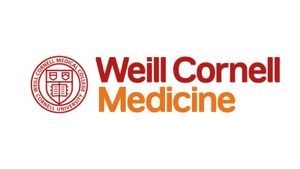
Minimum GPA: 3.0
Prerequisite Coursework
- 2 courses of Biology with Lab (BIOL 100 + BIOL 102)
- 2 courses of General Chemistry (CHEM 102 + CHEM 104)
- 1 course of Microbiology (lab component strongly recommended)
- 1 course of Biochemistry (lab component strongly recommended) (BIOL 301)
- 1 Year of Anatomy and Physiology (BIOL 120 & BIOL 122)
- 1 course of English Composition

Minimum GPA: 3.0
Prerequisite Coursework
- 1 year of Biology with Lab (BIOL 100 + BIOL 102)
- 1 year of General Chemistry (CHEM 102 + CHEM 104)
- General Chemistry Lab (CHEM 106 includes 102 + 104)
- 1 year of Anatomy & Physiology (BIOL 120 + BIOL 122)
- Microbiology (BIOL 230)
- Statistics (STAT 213)

Minimum GPA: 3.0
Prerequisite Coursework
- 1 year of Biology with Lab (BIOL 100 + BIOL 102)
- 1 year of Anatomy & Physiology (BIOL 120 + BIOL 122)
- 1 year of General Chemistry (CHEM 102 + CHEM 104)
- General Chemistry Lab (CHEM 106 includes 102 + 104)
- 1 semester of Organic Chemistry (CHEM 222 + CHEM 223)
- 1 semester of Biochemistry (BIOL 300)
- Microbiology (BIOL 230)
- 1 semester of Psychology (PSYCH 100)
- 2 semesters of college math; one of these courses must be Statistics (STAT 213)
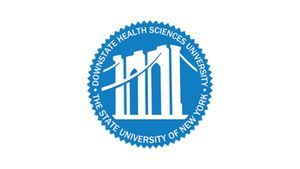
Minimum GPA: 3.0
Prerequisite Coursework
- 1 year of Biology with Lab (BIOL 100 + BIOL 102)
- 1 year of Anatomy & Physiology (BIOL 120 + BIOL 122)
- 1 year of General Chemistry Lab (CHEM 102 + CHEM 104)
- General Chemistry Lab (CHEM 106 includes 102 + 104)
- Microbiology (BIOL 230)
- Mathematics (not remedial math nor statistics)
- 1 semester of General Psychology (PSYCH 100)
- 1 semester of Abnormal Psychology (PSYCH 223) or Life Span Psychology1
- Humanities or Social Science courses 2
- 1 upper division science course 3
- 6 credits of English
1 More than one course may be required to fulfill the Life Span Psychology pre-requisite. Course must cover from birth to aging.
2 Preferably writing intensive courses. Applicants may be required to submit a course description.
3 Upper division science courses are generally physical/life science courses numbered 300 level or higher. They require prerequisite course work or are designated as such by the institution. They are generally completed at 4-year colleges/universities (at the junior or senior year level). Applicants will need to consult with the Registrar's Office at their home school to be sure the course is at an upper division level. Upper division science courses completed at community colleges will be accepted. However, applicants may be required to submit proof of the upper-division status of the course.
Visit Their Website for More Information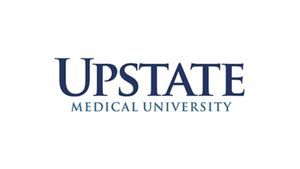
Minimum GPA: 3.0
Prerequisite Coursework
- 2 courses of Biology with Lab (BIOL 100 + BIOL 102)
- 2 courses of General Chemistry (CHEM 102 + CHEM 104)
- 1 course of Microbiology with Lab
- 1 course of Organic Chemistry or Biochemistry with Lab
- Two courses of Anatomy and/or Physiology with Lab
- Genetics
- 1 course of English Composition
- English Elective
- Statistics
- Medical Terminology (0-3 credits)
- Behavioral or Social Science (2 courses from the list are required)
- Psychology
- Sociology
- Cultural Studies
- History
- Anthropology
- Political Science
- Economics
- Government
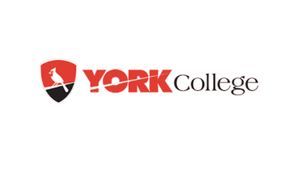
Minimum GPA: 3.0
Prerequisite Coursework
- 1 year of Biology with Lab (BIOL 100 + BIOL 102)
- 1 year of Anatomy & Physiology (BIOL 120 + BIOL 122)
- 1 year of General Chemistry Lab (CHEM 102 + CHEM 104)
- General Chemistry Lab (CHEM 106 includes 102 + 104)
- 1 semester of Biochemistry (BIOL 300)
- Microbiology (BIOL 230)
- Statistics (STAT 213)
- 1 year of Behavioral Sciences
- Must include 1 semester of Psychology (PSYCH 100)
- Other course could be psychology, sociology, or anthropology
Recommended Coursework
- Organic Chemistry
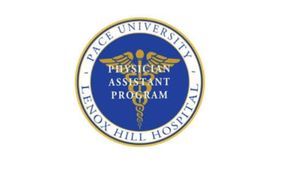
Minimum GPA: 3.0
Prerequisite Coursework
- 1 year of Biology with Lab (BIOL 100 + BIOL 102)
- 1 year of General Chemistry (CHEM 102 + CHEM 104)
- General Chemistry Lab (CHEM 106 includes 102 + 104)
- 1 semester of Biochemistry (BIOL 300)
- Microbiology (BIOL 230)
- Statistics (STAT 213)
- 1 year of Behavioral Sciences (CHEM 222) + Organic Chemistry I Lab (CHEM 224) OR Biochemistry + Lab (BIOL 300)
- Organic Chemistry II Lab (CHEM 225)
- 1 year of Anatomy & Physiology (BIOL 120 + 122)
- Mathematics 1
1 Pre-Calculus or Statistics
Visit Their Website for More Information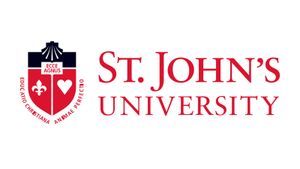
Minimum GPA: 3.0
Prerequisite Coursework
- 1 year of Biology with Lab (BIOL 100 + BIOL 102)
- 1 year of General Chemistry (CHEM 102 + CHEM 104)
- General Chemistry Lab (CHEM 106 includes 102 + 104)
- 1 year of Organic Chemistry with Lab (CHEM 222, CHEM 223 + CHEM 224, CHEM 225) OR 1 semester of Organic Chemistry with Lab AND 1 semester of Biochemistry (BIOL 300)
- 1 year of Anatomy & Physiology (BIOL 120 + BIOL 122)
- Microbiology (BIOL 230)
- 6 credits of Behavioral Science
- Calculus (MATH 150)
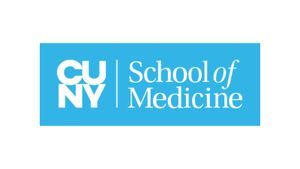
Minimum GPA: 3.0
Prerequisite Coursework
- 1 year of Biology with Lab (BIOL 100 + BIOL 102)
- 1 year of General Chemistry with Lab
- 3 credits in Microbiology with Lab
- 3 credits in Statistics
- Two of the following courses:
- Cell & Molecular Biology
- Genetics
- Anatomy & Physiology I & II with Lab
- Mammalian Physiology
- Biochemistry
